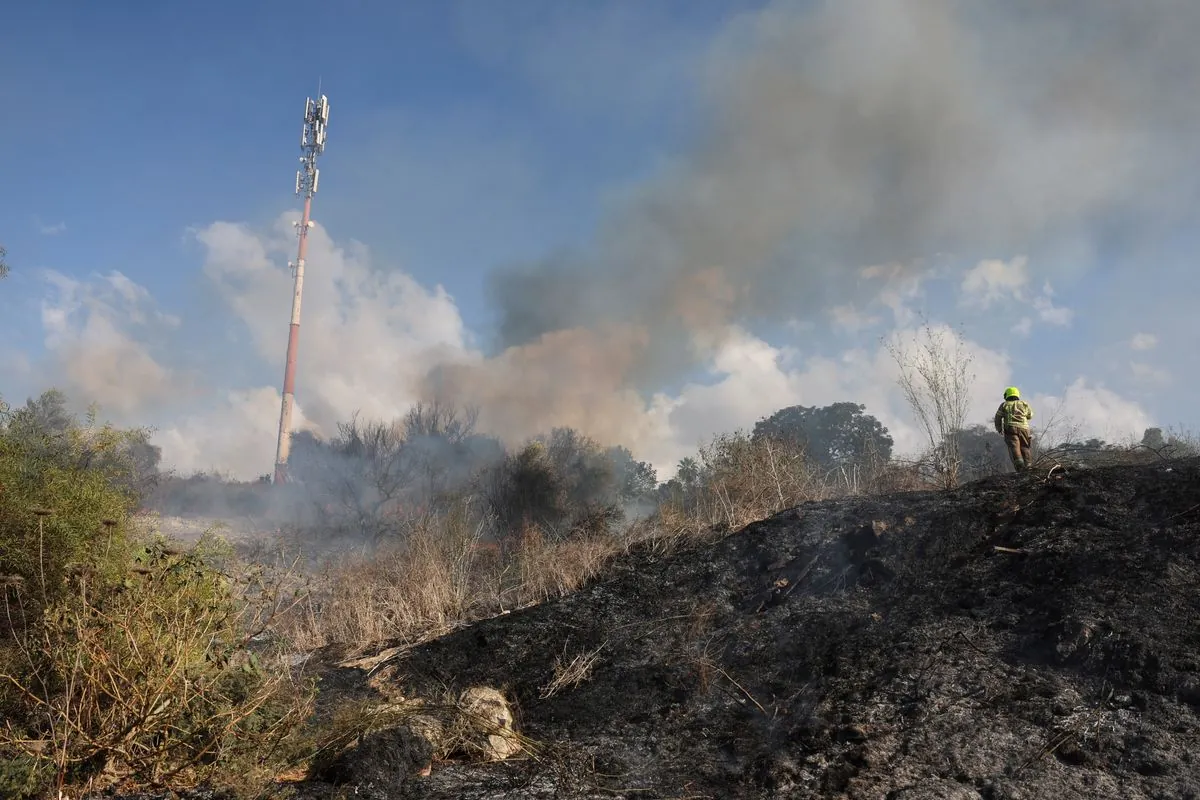Yemen-Launched Missile Strikes Central Israel, Escalating Regional Tensions
A missile from Yemen hit central Israel, triggering alarms but causing no casualties. The incident highlights growing regional tensions amid the ongoing Gaza conflict and Iran's support for militant groups.

In a significant escalation of regional tensions, a long-range missile originating from Yemen struck an open area in central Israel early Sunday. This event marks the latest development in the ongoing conflict that has engulfed the region for nearly a year.
The Israeli military reported that the missile attack triggered air raid sirens across central Israel, including at Ben Gurion Airport, the country's primary international gateway. Despite the alarm, there were no reported casualties or significant damage. Operations at the airport quickly resumed normalcy after a brief disruption.

This incident underscores the expanding reach of Yemen's Houthi rebels, who have been launching attacks against Israel since the outbreak of hostilities in Gaza. The Houthis, supported by Iran, have repeatedly attempted to strike Israeli targets, though most of their projectiles have been intercepted over the Red Sea, one of the world's busiest shipping lanes.
"The sound of explosions in the area came from interceptors."
The attack from Yemen, located over 2,000 kilometers from central Israel, demonstrates the rebels' growing capabilities and the widening scope of the conflict. It's worth noting that Yemen, the poorest country in the Middle East, has been embroiled in its own civil war since 2014, resulting in what the United Nations describes as the world's worst humanitarian crisis.
This latest incident follows a pattern of escalating regional tensions. In July 2023, an Iranian-made drone launched by the Houthis struck Tel Aviv, Israel's economic and technological hub, resulting in one fatality and ten injuries. Israel responded with airstrikes on Houthi-controlled areas in Yemen.
The ongoing conflict has its roots in the Hamas attack on southern Israel on October 7, 2022, which sparked the Gaza war. Since then, the situation has rippled across the region, with Iran and its allied militant groups targeting Israeli and U.S. interests, while facing retaliatory strikes from Israel and its Western allies.
Iran's support for various militant groups, including Hamas, the Houthis, and Lebanon's Hezbollah, has been a significant factor in the regional dynamics. These groups claim to act in solidarity with the Palestinians, particularly those in Gaza, which has been under blockade since 2007.
The Israel-Lebanon border has also seen increased hostilities, with Hezbollah, founded during Lebanon's civil war in 1982, engaging in near-daily exchanges of fire with Israeli forces. This ongoing conflict has displaced tens of thousands on both sides of the border, with Israel threatening a wider military operation to ensure the safety of its citizens.
As tensions continue to simmer, the international community remains concerned about the potential for a broader regional conflict. The situation underscores the complex web of alliances and conflicts in the Middle East, with each incident carrying the risk of further escalation.


































